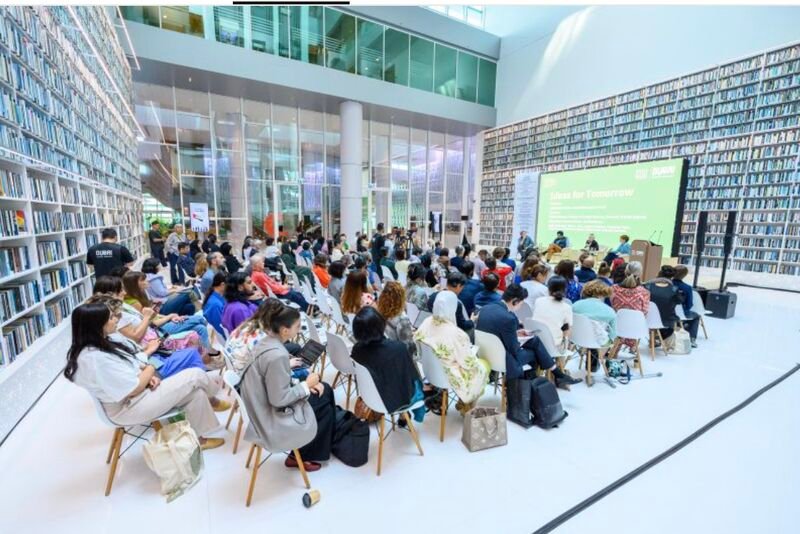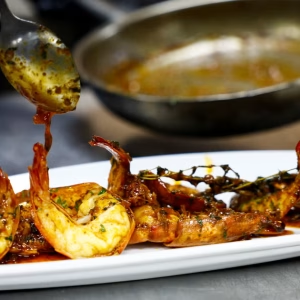In the sun-drenched villages of the United Arab Emirates, where digital screens often outshine printed pages, one woman is turning the tide. Fatema Abdul Rahman Al Tamimi, an Emirati librarian, is on a mission to rekindle the love for reading among children in rural communities.
A Passion Ignited
Fatema’s journey began in the bustling libraries of Abu Dhabi, where she witnessed firsthand the transformative power of books. Recognizing the disparity in access to reading materials between urban centers and remote towns, she envisioned a program that would bridge this gap. Thus, the “Little Librarian” initiative was born.
Empowering Young Minds
The “Little Librarian” program, spearheaded by Maktaba—the library management department of the Department of Culture and Tourism in Abu Dhabi—invites children to take on the role of librarians. They manage book collections, organize reading circles, and recommend titles to peers. This hands-on approach not only fosters a love for reading but also instills responsibility and leadership skills.

“By involving children directly, we make libraries a place of enjoyment and creativity,” Fatema explains. “It’s about more than just books; it’s about building confidence and community.”
Reaching the Unreachable
Fatema’s efforts align with the UAE’s broader National Literacy Strategy, which aims to make reading a daily habit for 50% of Emirati adults and 80% of school students by 2026. The strategy emphasizes the importance of family involvement, with goals for half of Emirati parents to read to their children regularly.
To support these objectives, initiatives like the Mohammed Bin Rashid Library’s “A World Reads” have donated over 40,000 books to educational institutions across the country, ensuring that even the most remote communities have access to quality reading materials.
Embracing Technology
Understanding the digital shift in reading habits, with over 90% of readers utilizing social media platforms for reading in 2023, Fatema integrates technology into her programs. Interactive workshops and digital storytelling sessions complement traditional reading, catering to the evolving preferences of young readers.
A Ripple Effect
The impact of Fatema’s work is evident. Parents report increased enthusiasm for reading at home, and children display improved communication and analytical skills. The success of the “Little Librarian” program has inspired similar initiatives nationwide, reinforcing the UAE’s commitment to fostering a culture of reading.
Looking Ahead
As the UAE continues to prioritize literacy through policies and programs, Fatema remains a beacon of inspiration. Her dedication exemplifies how individual passion, when supported by national strategies, can effect meaningful change.
In the quiet corners of rural towns, where stories once lay dormant, a new chapter is being written—one where every child holds the key to a world of imagination and knowledge.
From Curiosity to Career

Noura’s love affair with books began in a place many Emiratis of her generation can relate to — her grandmother’s majlis. There, under the soft hum of the air conditioner and the scent of oud, elders would tell stories of jinn, pearl divers, and legendary falcons.
But Noura wanted more.
“At some point, oral stories weren’t enough,” she laughs. “I wanted to hold them. I wanted to read them, underline them, carry them around.”
She began collecting books obsessively as a teen — everything from local poetry to translated Japanese manga. But it wasn’t until she interned at the Mohammed bin Rashid Library in Dubai that she realized her passion could become her profession.
“I didn’t know being a librarian could mean organizing workshops, running reading campaigns, or working on national education policy,” she says. “But it can. And it does.”
Today, as Head Librarian at the Zayed Cultural Foundation Library in Abu Dhabi, Noura is leading a wave of change that blends tradition, tech, and community.
Libraries, Reimagined
Gone are the days when libraries in the region were silent, dusty repositories. Under Noura’s leadership, her library now hums with activity — bilingual story hours, coding camps, heritage exhibitions, teen poetry slams, and even pop-up book clubs in malls and metro stations.
“Reading should never feel like a chore,” she says. “It should feel like an invitation.”
One of her proudest innovations is the “Mobile Majlis”, a roving library bus that visits remote areas of Al Ain and the Western Region, bringing books, tablets, and storytelling sessions to children who don’t have easy access to cultural hubs.
“We’ve visited villages where some kids have never owned a book,” Noura says. “Watching their faces light up — that’s why I do this.”
She’s also collaborated with local schools to develop culturally relevant reading lists that blend global literature with Emirati heritage, ensuring students see their own lives reflected in the pages they turn.
“We love Harry Potter, sure,” she smiles, “but where are our own magical creatures? Our landscapes? Our values?”
A Voice for Cultural Preservation
Noura’s mission isn’t just about boosting literacy stats. It’s also deeply rooted in preserving Emirati identity in a rapidly changing world.
“There’s a risk,” she warns, “that in our rush to modernize, we lose sight of the stories that shaped us.”
To that end, she’s launched the “Whispers of the Desert” oral history project — a community-driven archive where elders record tales of their youth, tribal traditions, and local folklore. These recordings are now accessible in digital form through library kiosks and apps.
The goal? To make cultural heritage as accessible as the latest bestseller.
She’s also curated exhibitions on traditional calligraphy, pearl diving literature, and women in Bedouin poetry — all aimed at highlighting the literary threads woven through Emirati history.
“We were always a storytelling people,” she says. “I’m just helping us remember.”
Bridging Generations and Languages
Noura’s work also focuses on bridging the generational gap. While older Emiratis may be more comfortable in Arabic, many younger readers — especially in urban areas — prefer English.
Instead of choosing one over the other, she promotes literary bilingualism.
“Both languages are part of who we are now,” she explains. “You can love Shakespeare and Ibn Arabi. You can read Rupi Kaur and Ousha the Poet.”
To support this vision, she’s overseen the translation of Emirati short stories into English and worked with local authors to publish bilingual picture books for early readers.
She’s even started a podcast — Between the Lines — where she interviews Emirati writers, translators, and educators about the evolving literary landscape of the UAE. It’s become especially popular among university students and teachers.
Advocating for National Change
Beyond her library walls, Noura is now advising on national literacy strategy, pushing for stronger public funding for rural libraries, accessible reading materials for people with disabilities, and digital platforms that include more regional content.
“Books shouldn’t be a luxury,” she says. “They should be a right.”
She’s also an advocate for literary inclusivity, championing books that reflect the diversity of Emirati society — including stories from expat writers who call the UAE home.
“Identity here isn’t black and white,” she says. “It’s layered. Our libraries should reflect that.”
In 2024, she received the UAE Pioneer Award for her contributions to education and culture. But for Noura, the real reward is seeing a child choose a book over a screen — or hearing a teen quote a local poem at a slam event.
“That’s when I know it’s working,” she says. “That we’re not just teaching literacy — we’re sparking imagination.”
The Future of Books in the Emirates
With AI and e-learning on the rise, some might question the future of physical libraries. But Noura sees it differently.
“Books will never die,” she insists. “But they will evolve. And we need librarians who can evolve with them.”
“People think being a librarian is about shushing people,” she laughs. “It’s not. It’s about advocacy. It’s about leadership. And yes, it’s about love — for stories, for culture, and for community.”
One Page at a Time
Back in her library, as the sun dips over the mangroves outside the window, Noura returns a book to the shelf — a battered copy of a 1980s Emirati folk tale collection, worn at the edges from use.
“This is the kind of book that saved me as a kid,” she says softly. “I want every child in the UAE to have that same chance — to find themselves in a story, and realize that their voice matters too.”
In a world of fast trends and fading attention spans, Noura Al Ketbi is proving that reading still holds power — quiet, steady, transformative power.
And she’s not just building libraries. She’s building a legacy.
Read More: Dubai Marina’s Top Lounges: Where Glamour Meets Skyline Views













